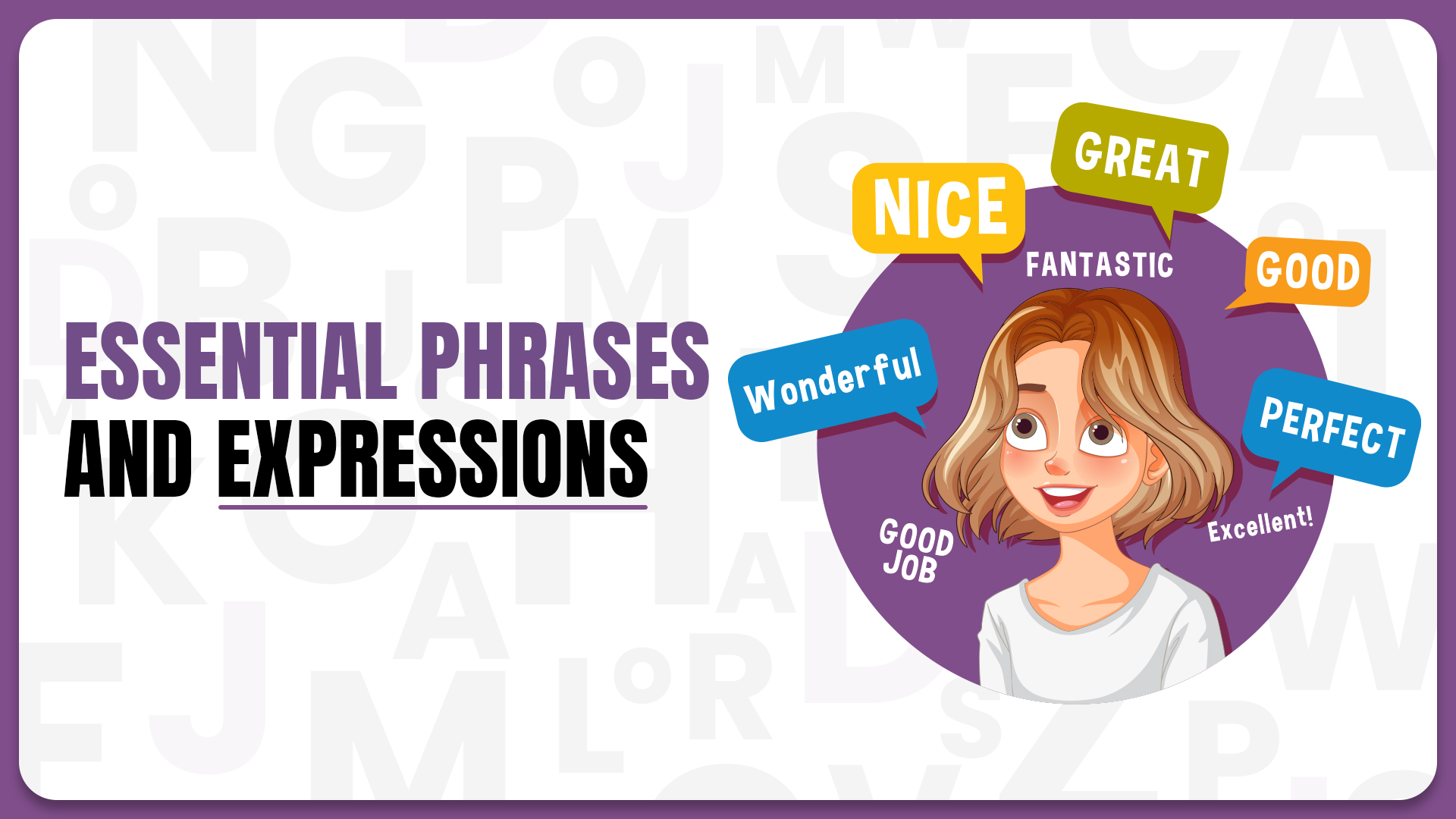Essential phrases and expressions in English for everyday conversations




Are you tired of feeling lost in English conversations?
Do you struggle to find the right words to express yourself?
Do you often feel you miss out on social events or jobs due to language barriers?
Many people encounter comparable challenges in their efforts to communicate effectively in English.
In today's world, effective communication is key to success. A good command of English is essential. This applies to students, parents, and young professionals. But let's face it, speaking English fluently can be a daunting task.
This blog will give you key phrases to confidently chat in daily conversations. We'll also share tips to help you improve your English conversation skills. That will boost your confidence and make everyday conversations a breeze.
English is the world's lingua franca. Mastering it opens many doors. Strong English skills are vital for travel, study, or work. They let you connect with diverse people, express ideas clearly, and build relationships.
Academic Success: English is the language of instruction in many educational institutions worldwide.
Career Advancement: Good English can greatly improve your job prospects and pay.
Global Connections: English lets you connect with people from diverse cultures.
A study by the Pew Research Center found that English is the most widely studied language worldwide, reflecting its global importance.
Grammar and vocabulary are key for English skills. But, it's also vital to learn everyday phrases and expressions. Learning everyday phrases is like building a foundation for your English. These phrases are the building blocks of effective communication. These conversational tools help you sound more natural and engaging. They allow you to express your thoughts and feelings in a way that resonates with others.
Imagine this: You're at a party and someone asks you about your weekend. If you only know a few basic phrases, you might struggle to respond. But, knowing everyday expressions lets you share your experiences. It helps you have meaningful conversations.
A study published in the Journal of Language and Social Psychology found that using everyday expressions can make a speaker seem more approachable, trustworthy, and empathetic.
Here are some essential phrases and expressions that you can use in your everyday conversations:
Greetings and Farewells:
Expressing Opinions:
Expressing Feelings:
Asking Questions or asking for Clarification:
Making Suggestions:
Making Requests:
Expressing Gratitude:
Agreeing and Disagreeing:
A study published in the Journal of Second Language Learning demonstrated that consistent language practice, including speaking and listening activities, leads to significant improvements in overall language proficiency.
At Interval Learning, we believe everyone deserves a chance to learn English well. Our Speak Pro program offers a course to improve your spoken English. It will help you build confidence. Our skilled instructors and interactive materials will make you fluent fast.
Are you ready to take your English conversation skills to the next level? Join Interval Learning's Speak Pro program today and start speaking English with confidence
Practice speaking aloud and listen carefully to native English speakers. You can also use pronunciation apps or websites to help you.
Create flashcards, use vocabulary apps, and read English books or articles.
Start by practicing with a friend or family member. Gradually expose yourself to more challenging speaking situations. Read this blog:https://www.intervaledu.com/blogs/how-to-overcome-speech-anxiety-and-build-confidence/
t takes different times to learn English. It depends on your learning style, dedication, and practice.
Yes, you can learn English on your own. A structured course and guidance from expert instructors can speed up your learning.
Learning any new language requires effort and dedication. With the right approach, learning English can be fun and rewarding.